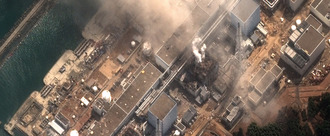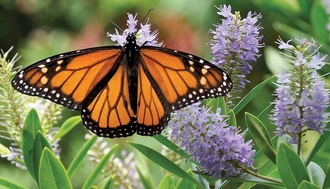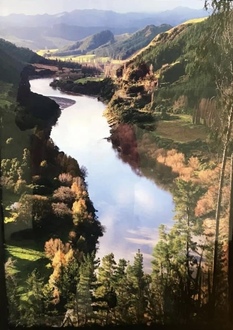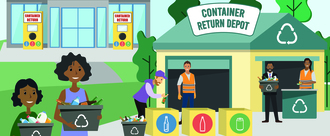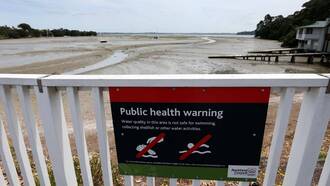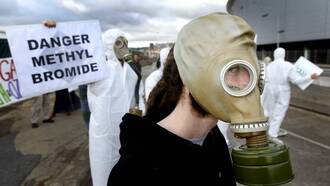-
Keep GE technology in the lab!At the time of writing the Luxon Government is pushing the Gene Technology Bill through Parliament. This bill proposes to deregulate the use of GMOs in Aotearoa. Gene technology and experimentation involves changing, controlling and manipulating the genes of living beings. These can be plants and animals, and invisible bacteria and soil microbes. The objective is to encourage these genes to behave in specific ways, usually for commercial purposes. It has been used in closed lab conditions for the last three decades. New Zealand’s strict regulations have prevented the contamination of nature and food and our GE Free producer status is of great economic value to food producers. Yet around the world GE technology is undermining food and seed sovereignty. The release of gene edited crops or organisms outside the lab carries significant environmental risks to Aotearoa. Potential harms include risks to our unique ecosystems and biodiversity and cultural heritage. GE tech threatens the livelihoods and brand of organic and non-GE growers who would face the threat of cross-contamination. We run a huge risk of contaminating both the natural biodiversity and our actual food supply network. Beyond the Bill risks New Zealand’s global brand of being a clean and green country, which we all depend on in some way. GE tech is a false solution that companies would use to avoid accountability for good environmental stewardship. While some industries may gain financially from free use of GE tech, there is a lot at stake for other industries. We call on the Government and all parties in Parliament to tighten regulation of genetic editing by not releasing GMOs into our communities. We encourage using the precautionary principle and not risk what we already have. We should maintain the advantage of high control, much like the bio-control approach we use for our borders to protect agriculture industry and native wildlife. We also recommend enforcing ‘traceability requirements’ to track GE products in the food supply. This would maintain transparency for everyone, and safeguard New Zealand’s ‘clean, green reputation. Sign our petition to support a safe GE free future! Please also support: • The Organic NZ campaign for a GE-free future! • Papawhakaritorito Trust314 of 400 SignaturesCreated by Mardi Porter
-
Open Letter: Resist the Fast Track!At the centre of the Luxon Government’s War on Nature is the Fast Track Bill. This damaging new legislation shortcuts environmental protections and sidelines both Te Tiriti and democracy. It could see the forests and oceans of Aotearoa reduced to open-cast mines, rivers and lakes turned to sewers, and precious wildlife condemned to extinction. Australian miner Trans Tasman Resources has already said it will use the Fast Track to gain access to the South Taranaki Bight where they plan to rip up 50 million tonnes of the seabed every year for over 30 years. Opposition to the Fast Track has already been widespread and some industry leaders are already saying they won’t use the Fast Track as a result. We need more to follow their lead. Sign on to this open letter to industry now to help push more of them to opt out of the Fast Track.216 of 300 SignaturesCreated by Greenpeace Aotearoa

-
Stop Fukushima radioactive waste water dump into the PacificJapan is preparing to dump about 1.3 million tonnes of contaminated water into the Pacific over the next three to four decades. It claims this would be made safe through an Advanced Liquid Processing System (ALPS) and then dilution, but the water will still be radioactive. The dump of contaminated water is part of the effort to decommission the Fukushima Daiichi Nuclear Power Plant, 12 years after it was overwhelmed by a tsunami. International laws are clear that States cannot undertake activities in their own waters that will have harmful effects in the high seas. There is no question that releasing radioactivity is contaminating the high seas. By not challenging the move, Pacific leaders, including New Zealand, could be undermining [1] the objectives of the South Pacific Nuclear Free Zone Treaty, otherwise known as the Rarotonga Treaty. Article Seven of the Rarotonga Treaty[2] places an obligation on states which are signatories to "prevent dumping" in light of the legacy of nuclear weapons testing in the region. Ocean currents experts are predicting the waste would sweep right across the Pacific. Nations in the Asia Pacific region, led by the Pacific Island Forum, have strongly voiced their opposition to the plans.[3] Some of the world’s leading oceanographic institutes and marine scientists have criticised the weakness of the scientific justification[4] applied by TEPCO, the owner of the nuclear plant, warned against using the Pacific Ocean as a dumping ground for radioactive contaminated water, and called for alternatives to discharge to be applied. Pacific Islands Forum (PIF) secretary general Henry Puna has said that the release poses major impacts and long-term worry for Pacific Island states who should not have to bear another nuclear testing activity. Greenpeace International says [5] “The Japanese government is desperate for international endorsement for its Pacific Ocean radioactive water dump plans. It has failed to protect its own citizens, including the vulnerable fishing communities of Fukushima, as well as nations across the wider Asia Pacific region. The aftermath of the nuclear disaster at Fukushima is still strongly felt, and the Japanese government has failed to fully investigate the effects of discharging multiple radionuclides on marine life. The government is obligated under international law to conduct a comprehensive environmental impact assessment, including the impact of transboundary marine pollution, but has failed to do so. Its plans are a violation of the UN Convention Law of the Sea.” Greenpeace East Asia analysis[6] has detailed the failures of liquid waste processing technology at the Fukushima Daiichi plant and the environmental threats posed by the releases. REFERENCES: Rarotonga Treaty could be 'undermined' if Pacific leaders don't oppose Japan's nuclear dump | RNZ News: https://www.rnz.co.nz/international/pacific-news/492863/rarotonga-treaty-could-be-undermined-if-pacific-leaders-don-t-oppose-japan-s-nuclear-dump Treaty of Rarotonga | NATIONS UNIES: https://www.un.org/nwfz/fr/content/treaty-rarotonga#:~:text=The%20Rarotonga%20Treaty%20also%20includes,radioactive%20matter%20(Article%207) Japan must work with the Pacific to find a solution to the Fukushima water release issue – otherwise we face disaster: https://www.forumsec.org/2023/02/06/op-ed-japan-must-work-with-the-pacific-to-find-a-solution-to-the-fukushima-water-release-issue-otherwise-we-face-disaster/ 2022-12 Position Paper: Release of Radioactively Contaminated Water into the Ocean: https://www.naml.org/policy/documents/2022-12-12%20Position%20Paper,%20Release%20of%20Radioactively%20Contaminated%20Water%20into%20the%20Ocean.pdf Ignoring science, environmental protection and international law – G7 endorses Japan’s Fukushima water discharge plans: https://www.greenpeace.org/international/press-release/59193/science-environmental-protection-international-law-g7-japans-fukushima-water-discharge/ Stemming the Tide 2020: The reality of the Fukushima radioactive water crisis: https://www.greenpeace.org/static/planet4-japan-stateless/2020/10/5e303093-greenpeace_stemmingthetide2020_fukushima_radioactive_water_crisis_en_final.pdf843 of 1,000 SignaturesCreated by Nick Young

-
Stop the government giving millions more free carbon credits to polluters!This year we have experienced climate chaos firsthand with three devastating climate related storms in three weeks. The Emissions Trading Scheme (ETS) is New Zealand’s biggest tool to reduce climate pollution. But a new law going through Parliament aiming to update the Emissions Trading Scheme (ETS) could in fact allow even more pollution. A new clause adds in a mechanism to “reevaluate” which companies qualify for free carbon credits (Industrial allocations ) which could drastically increase the number of companies which get a free pass to pollute. It could also give some companies an increased number of free credits! What’s more, this whole scheme of free credits was originally meant to be phased out by 2030 but now this bill is proposing to enlarge the scheme and hand out even more free passes to pollute! For example, what could this Bill mean for a company like Fonterra? Fonterra’s lactose and whey manufacturing currently gets free credits to cover 57% of its emissions. Under this Bill, this could potentially increase to 87% free, and those extra free credits would be worth around $2M per year! But that’s not all. Fonterra’s other manufacturing operations like milk drying don’t currently qualify at all, but might under the changes in this Bill. Those operations emit over 1 MILLION tonnes a year, so if they did qualify, the extra free credits could be worth tens of millions of dollars annually… 🔥🌏 This is absolutely unacceptable in a climate crisis. 🌏🔥 Please sign our petition to • stop the Bill’s backward steps giving even more companies free credits and increasing the amount given to some companies • change the Bill to ban any new companies from getting free passes to pollute and to phase the free credit scheme out faster for existing companies. • Support the parts of the bill which do cut back insanely high free emission credits some companies have received. Thanks, Emily & Tim (Climate Club & Coal Action Network Aotearoa)3,453 of 4,000 SignaturesCreated by Emily & Tim (Climate Club & CANA)
-
Create community focussed green spacesThe cost of food is becoming unreachable for so many of our people. At the same time, our parks are not reaching their potential as safe community and family focused environments. Food-producing plants need to be in public spaces for locals to harvest free nutritious food. Productive plants clean the air, provide much needed shade from our dangerous sun, and provide nutritious and delicious food for the people - included in existing standard rates. We would need to provide education around when the food is ready to harvest, all that would take is a small sign beneath each tree with information. People could take cuttings from the trees if they love the food it produces, and grow one in their own home garden. Our Council needs to maintain green spaces anyway, so why not add some producing plants into our green spaces? Examples of producing plants are: fruit, nut and tea trees, seasonal vegetables, herbs, and flowers for pollinators. Myself and the community would be happy to assist with design and implementation requirements. Every park could provide local families with free picnicking food during their visit. Every sports field could provide players with nutritious half time snacks. Every neighbourhood street could be a walkway for 'grocery shopping'. Let's grow edibles for strong community sharing and health focused consumption.21 of 100 SignaturesCreated by Melissa Winn
-
Your water!.. Your future!.. No water!.. No future!Water is the very essence of all life without it nothing can survive. Cooperations and overseas investors wish to exhaust our natural resource for capital gain. We cannot drink their money. Our natural springs take many many years to replenish and the threat of a water bottling company will collapse our waterways. Future generations yet to be born will have very little or no water. We must stop this from happening. Aotearoa stand with us the Whanganui community for we are all connected by the water and it is our responsibility to protect our waterways.27 of 100 SignaturesCreated by Te Awhina Hamahona
-
Make a submission to support a beverage Container Return Scheme for AotearoaAfter years of campaigning from community groups, waste minimisation experts and with support from local government and the Environment Select Committee, the Kiwi Bottle Drive and allied organisations Zero Waste Network, Para Kore, Greenpeace, the Rubbish Trip and the New Zealand Product Stewardship Council are delighted with the government’s proposal to finally implement a Container Return Scheme in Aotearoa New Zealand! The proposal currently out for public consultation includes most of the key points we have been advocating for, such as a 20c deposit, the inclusion of all materials, and convenient and accessible collection points. There is room for improvement in a few areas: to keep things simple and fair, milk and refillables should be included in the scheme and more power must be given to community and social enterprises, with particular regard for Māori-led initiatives, rather than handing the Container Return Scheme to industry to lead. We have the chance now to make a few tweaks and develop the best Container Return Scheme for Aotearoa: a simple, comprehensive Tiriti-led scheme that will increase the circularity of beverage containers, ensure producer responsibility and deliver maximum benefits to the community. Add your voice to the group submission now! *If you prefer, you can make a submission directly through the government website, where you can also read more about the proposals: https://environment.govt.nz/what-government-is-doing/areas-of-work/waste/container-return-scheme-reducing-waste-landfill/4,015 of 5,000 SignaturesCreated by Kiwi Bottle Drive
-
A Moratorium on Fishing of Long Finned Eel (Tuna) Needs to Be Implemented Immediately"The greatness of a nation and its moral progress can be judged by the way its animals are treated." - Mahatma Gandhi “Any threat to the eels are a threat to the identity and mana of the iwi and hapū who have a responsibility to protect them… It is outrageous that people are still catching them for profit.” - Sir Pita Sharples, 2013 "The Government must suspend the commercial catch of New Zealand's longfin eel, and accept the conclusion by Parliament's environment watchdog that the eel is on a path to extinction" - Green Party spokesperson for conservation and oceans & fisheries., Eugenie Sage, 2016 https://www.greens.org.nz/govt-must-act-longfin-eels-disappear "Killing a kererū - which is classified as "Near Threatened" - is punishable with a $100,000 fine, and/or up to two years in prison. Yet with the long finned eel - which is classified as "Endangered" – not only can recreational fishers legally take up to 6 day, but killing them is rewarded with somewhere between $10 and $20 per eel on the export market" - Charlie Mitchell, Environment Correspondent, Stuff, 2019 "https://www.stuff.co.nz/environment/113450351/managed-to-extinction-are-we-at-risk-of-losing-our-creature-of-mystery "The concern among scientists is that freshwater eel numbers are declining to the point where populations will not possess the critical mass necessary to carry on migration and reproduction. In the 19th century, the North American population of passenger pigeons was estimated to be over six billion, representing 25 percent or more of the total avian biomass of the continent. Even though millions of passenger pigeons were being killed every year, it seemed the resource could never be exhausted. The species went extinct in 1914" -James Prosek, award winning author, artist and filmmaker, 2010 https://e360.yale.edu/features/a_steady_steep_decline_for_the_lowly_uncharismatic_eel "Tuna whakaheke deaths are disastrous for the future" - Hori Kingi, Ngā Kaitiāki o Ngā Wāimāori https://www.nzherald.co.nz/northern-advocate/news/eels-minced-by-hikurangi-swamp-pumps-dumped-at-council-offices/HIFOC2IWYHNGTM7ZV6E7MXFX4Y/ The long-finned eel (tuna) is endemic to New Zealand. It is an ancient species with a profound connection to our land and its people. It is an iconic and mythical species with an important place in the history and folklore of Māori - with a special traditional role as a spiritual protector of the land, nature and people - as much as the kiwi, kererū, tuatara, Hector's dolphin and the like. It is categorized by the Department of Conservation as "Declining - At Risk" and yet we are exporting as much as 100 tonnes of them per year as well as allowing recreational fishermen to fish them at will. The tuna is one of the largest eel species in the world. It was once very common in our waters; today, it is endangered, yet we continue to plunder it. The government has done little meaningful to protect the species, despite prior petitions being presented to them (in 2013). When in opposition, Labour and the Greens supported the proposal of this petition (a moratorium on commercial harvesting) yet when they were elected, little changed. The tuna is a noble, beautiful, mighty species of creature that deserves a place in the heart of every citizen, just as the kiwi and tuatara. They bring happiness to people when they can see and interact with them in the wild. At this rate, reserves like Ngā Manu will be the only place to see them, and eventually the species will be gone forever - exactly like what happened (almost) to the American bison and the passenger pigeon, both species which were annihilated from billions of individuals to extinction or near extinction by thoughtless greed in the space of a matter of decades. Surely we are better than that - I think most Kiwis would assume that we are, but our history, and current policies and attitudes with respect to this issue, puts those important values in serious question. The campaign acknowledges the kaitiaki status of mana whenua/local iwi to best look after tuna. Note that a member of the community representing Eel Activists Wairarapa has made a submission to parliament petitioning for the species of tuna to be granted absolute protection, in light of its endangered status. Please also consider signing this petition here https://www.parliament.nz/en/pb/petitions/document/PET_113510/petition-of-david-famularo-protect-the-longfin-eeltuna Join the eel conservation Facebook group here https://www.facebook.com/groups/472729636842389/ I believe placing the tuna on the protected species list, like the kiwi, kea, native lizards, native dolphins, and so on, is ultimately the most desirable outcome, but the most urgent step is to place at least a temporary halt on its utterly unsustainable commercial exploitation. https://e360.yale.edu/features/a_steady_steep_decline_for_the_lowly_uncharismatic_eel https://www.stuff.co.nz/environment/128521642/threatened-eels-still-being-harvested-for-food-renewing-call-for-commercial-fishing-ban https://www.stuff.co.nz/environment/113954064/the-dams-the-science-and-the-tiny-industry-clinging-to-life?rm=a https://www.stuff.co.nz/environment/82056650/pressure-to-ban-fishing-of-longfin-eels-rises-as-industry-faces-upheaval?rm=ahttps://www.stuff.co.nz/taranaki-daily-news/69946047/eels-just-as-worthy-of-protections-as-kereru https://www.longfineel.co.nz/wp-content/uploads/2011/06/Tuna-Kuwharuwharu-Longfin-Eel.pdf https://eel-activists-wairarapa.blogspot.com/ https://www.pce.parliament.nz/publications/on-a-pathway-to-extinction-an-investigation-into-the-status-and-management-of-the-longfin-eel http://www.longfineel.co.nz/extinction-crisis/ https://www.visitzealandia.com/Events/ArtMID/2271/ArticleID/272/Tunaeel-release-to-keep-population-thriving http://www.longfineel.co.nz/conservation/ https://www.doc.govt.nz/nature/native-animals/freshwater-fish/eels/596 of 600 SignaturesCreated by Liam McMahon
-
Moratorium on helipad consents for Aotea / Great BarrierThe Aotea community is greatly concerned about the recent increase in helipad applications for Aotea, and the fact the Hauraki Gulf Islands District Plan “specifically envisions helipad activity” and provides a planning pathway for new consents. Our island is a precious ecological sanctuary; people live and visit here to experience a different pace and way of life. The potential proliferation of helicopters runs counter to this, and to the wairua of Aotea. Whilst we fully support and value the vital medical helicopter flights that service the island, we take issue with private, non-essential helicopter flights. They are an intrusive source of noise and pollution and are driving division in our normally tight-knit community. We call for a halt to all consent approvals, while a longer-term solution to this problem is found; one which protects our island’s peace, ecology and world-leading night skies, along with the climate.419 of 500 SignaturesCreated by Scotty Witherow
-
Stop the Poo-llution of Auckland’s urban waterways, beaches and coastal environmentThere is poo on our beaches! Auckland's waterways and beaches are seriously polluted by stormwater regularly contaminated by sewage, trade waste, heavy metals, toxins, chemicals, and oils thanks to years of inaction by the council, and fear of rate rises. We need urgent action so that New Zealanders can enjoy our urban waterways and beaches without fear of sickness or injury or swimming with poo and we protect our freshwater and marine organisms from pollution and destruction. We need action now, not in 10 years time. Give us back our beaches, estuaries, lagoons streams and rivers! This campaign is about raising peoples’ awareness of what is going on under our feet with inadequate infrastructure to cope with climate change and the massive intensification of Tamaki Makaurau, the Auckland region. So far there is almost a sole emphasis on rural areas and the problems intensive farming is causing to our rural waterways and lakes. This is really important. but so is the disgraceful state of many urban waterways and beaches where people are now regularly being told they cannot swim. There is a solution right now on the table the Council is avoiding - the government proposal for ‘three waters’ reform is perfect for Auckland specifically. The three waters are storm water, waste water, and drinking water. Through the proposal, Auckland can take advantage of Government funding to catch up on the needed upgrades and infrastructure spends. It will take politics out of the decisions and prioritise the health of the harbour and the people. Ngāti Whātua ki Orākei Iwi deputy chair, Ngārimu Blair and Council Mayor Phil Goff both sat on the working group for Three Waters reforms. Unfortunately Auckland’s Environment watchdogs do not - we are excluded. If there are concerns specific to Auckland region then let’s engage to adapt it for our region and make it work. We demand action now, not in 10, or 20 years time. Let’s revive our beaches, estuaries, lagoons, streams and rivers! By acting now we will revive the health of our freshwater and marine life, and the people’s health for generations to come. No more sewage or contaminated stormwater in our backyards and beach environments. We need to work together to clean this up - Māori, Pakeha, diverse communities, churches, community organisations, environmental groups, businesses, political parties, schools, and individuals. Kia kaha! Kia maia! Awhina mai! The Detail: How safe are Auckland's beaches from pollution? https://www.stuff.co.nz/national/the-detail/300217833/the-detail-how-safe-are-aucklands-beaches-from-pollution Nearly 40 Auckland beaches overwhelmed by faecal contamination, deemed unsafe for swimming https://www.newshub.co.nz/home/new-zealand/2021/04/nearly-40-auckland-beaches-overwhelmed-by-faecal-contamination-deemed-unsafe-for-swimming.html Government's Three Waters working group to include mayors Goff, Barry, Reese and Dalziel https://www.stuff.co.nz/national/politics/126951378/governments-three-waters-working-group-to-include-mayors-goff-barry-reese-and-dalziel720 of 800 SignaturesCreated by John McCaffery

-
Say no to dangerous Methyl Bromide emissions from Port of TaurangaNew Zealand is one of the world’s biggest users of methyl bromide, used mostly for killing insects and pests on logs being exported to China and India. Most fumigations happen at the ports of Tauranga, Whangarei and Napier. Methyl Bromide is a harmful toxic fumigation gas that is banned in most countries around the world as it is known to damage the ozone layer and has serious health effects on humans. It can have neurological and other health effects on humans and there have been several reports of port workers falling ill after being exposed to the gas – which is odourless – during fumigations. Communities in places such as Picton and Nelson believe that clusters of motor neurone disease and cancer were attributable to the use of methyl bromide at the ports. Articles for more information: https://www.stuff.co.nz/national/104267535/nelson-woman-whose-husband-died-of-motor-neurone-disease-says-toxic-methyl-bromide-should-have-been-banned-years-ago https://www.stuff.co.nz/environment/300067460/community-anger-as-deadline-for-controls-around-toxic-gas-methyl-bromide-waived Our community is exposed to this odourless gas every day as Genera's technology can only recapture up to 80% of Methyl Bromide. 20% (40 tonnes per year) is dispersed over surrounding areas of children's sports fields, schools, homes, boaties and the Marae. Because the Port of Tauranga's stormwater drains are sand-based, the Methyl Bromide washes into them and eventually seeps out into our harbour that we fish and swim in, destroying our environment and eco-systems. Genera want to use Ethanedinitrile (EDN) which is a cyanide based fumigant. Cyanides are well absorbed via the gastrointestinal tract or skin and rapidly absorbed via the respiratory tract. Once absorbed, cyanide is rapidly and ubiquitously distributed throughout the body, although the highest levels are typically found in the liver, lungs, blood and brain. Hydrogen cyanide is a colourless or pale blue liquid or gas. In air cyanide is present as gaseous hydrogen cyanide with a small amount present in fine dust particles. Cyanides have the potential to be transported over long distances from their respective emission sources. The lethal exposure for EDN at 267 ppm is immediately fatal therefore much worse than Methyl Bromide where lethal exposure is 7,900 ppm at 1.5hrs. In addition, EDN is extremely explosive with a detonation velocity of 2,500 m/sec. If there was a detonation at the Port of Tauranga in a ship that had been fumigated with EDN the explosion would be larger than the recent explosion in Beirut. The solution to the problem of fumigating at the Port of Tauranga is to remove all fumigation to industrial zones such as the Rangiuru Business Park where fumigation would take place in airtight sheds on rail wagons (99.9996% destruction rate) with the fumigated logs being transported to the Port of Tauranga for immediate loading into the ships. For the immediate and long term health of our families and eco-system, please sign this petition to indicate your opposition to Genera Limited's resource consent application RM19-0663 and ban all Methyl Bromide fumigation at the Port of Tauranga.930 of 1,000 SignaturesCreated by Clear the Air Mount Maunganui



